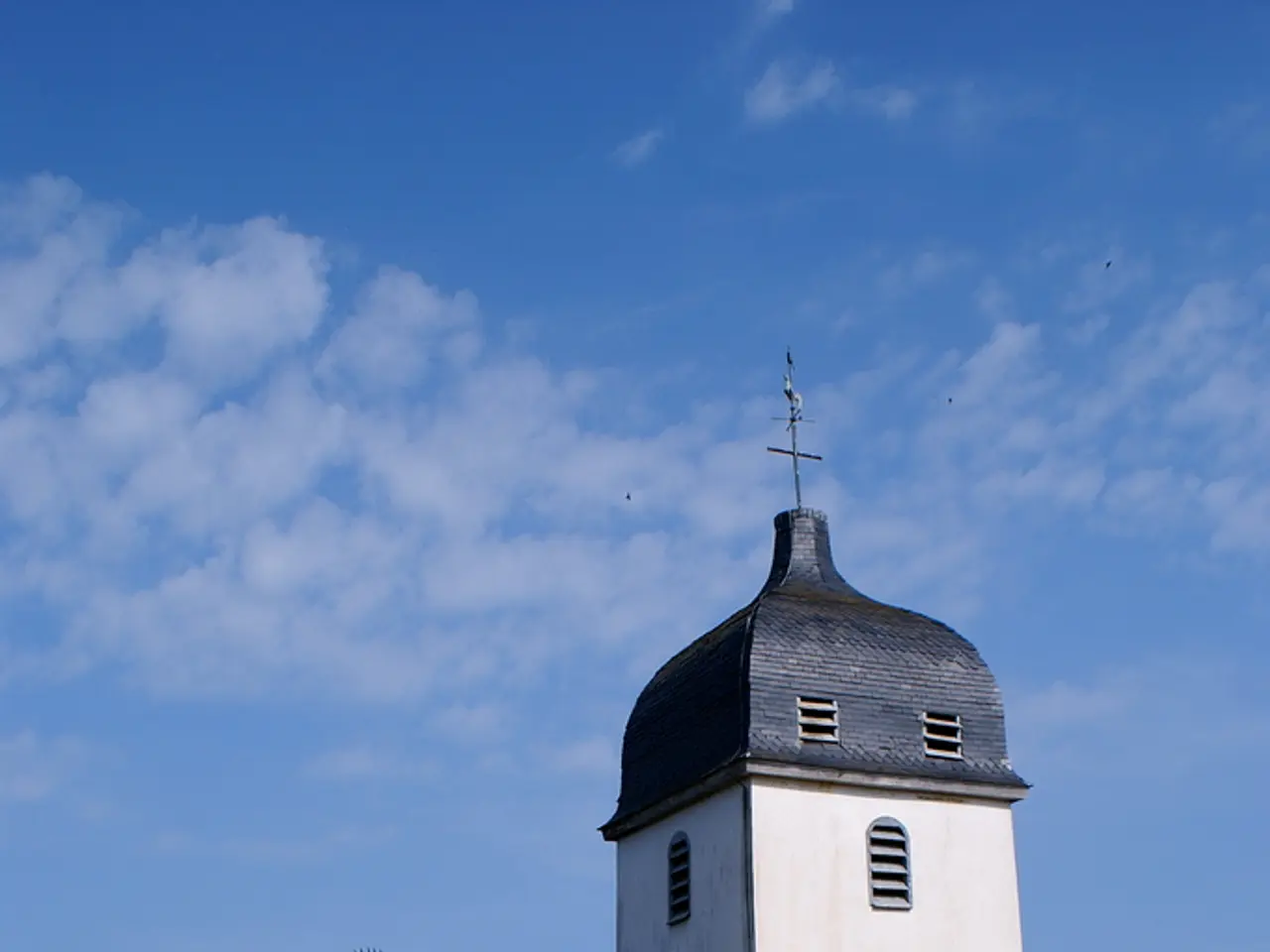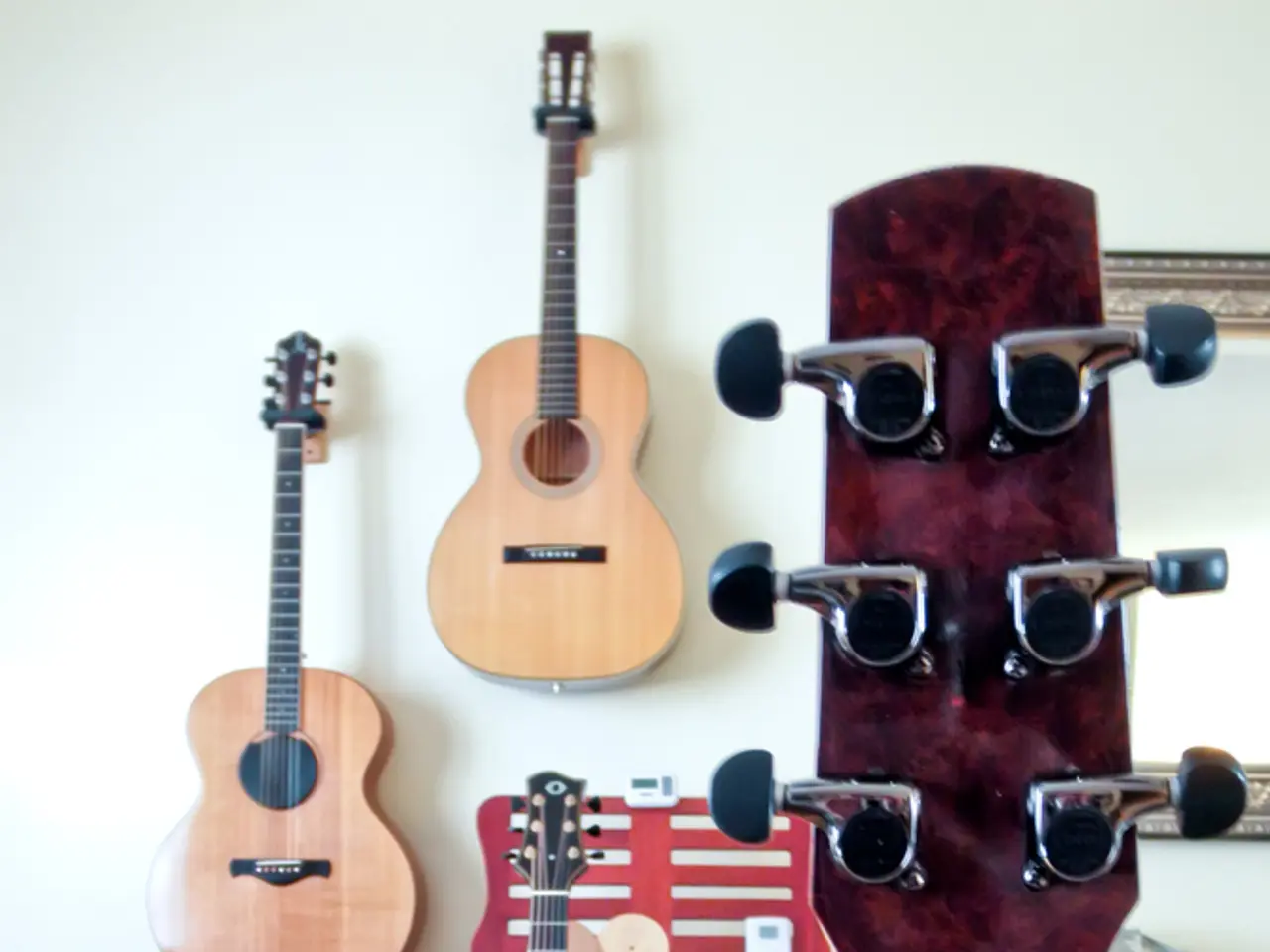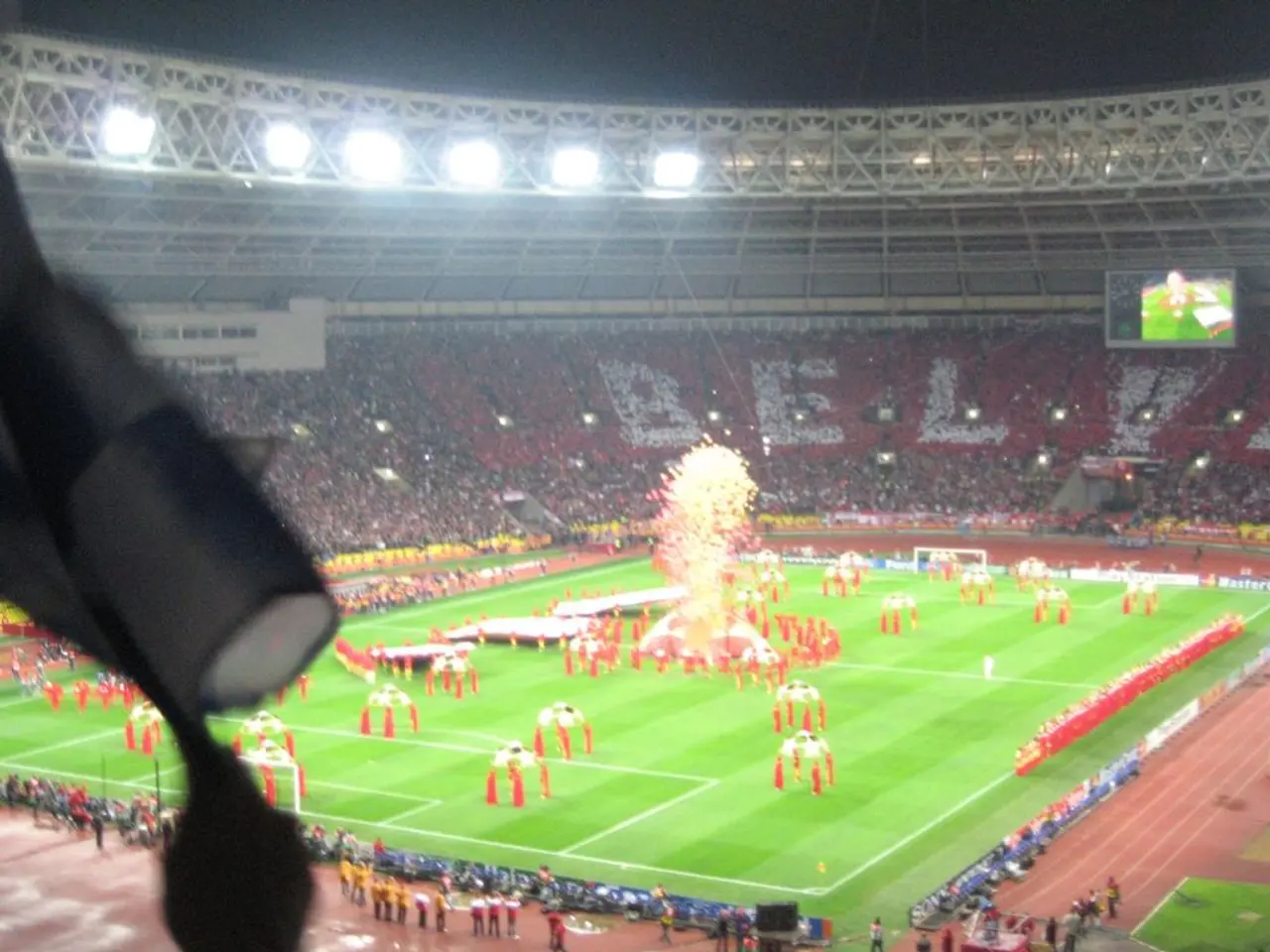In Russia, it's not just evangelicals voicing their disagreement against a restriction on home-based churches
In Russia, a new bill is causing concern among various religious communities. The proposed law aims to ban religious activities, including public services, rites, and ceremonies, in residential and non-residential premises of apartment buildings[1][4].
The bill, submitted to the State Duma in October 2024, specifically prohibits religious ceremonies in private homes and apartment blocks[2]. This could have a significant impact on minority and non-traditional religious groups, such as Jehovah's Witnesses, who have faced heavy targeting by the Russian government[1].
The Adventist Church in Russia is "categorically against" the bill, believing it violates the constitution's right to freedom of conscience[3]. The Roman Catholic Church in Russia has also expressed concerns about the bill[4]. The head of the Moscow Patriarchate's legal department has called for revisions due to these concerns[5].
The Russian Orthodox Church, while closely allied with President Putin and supporting his policies, has not explicitly endorsed the bill. However, the bill aligns with the concept of "spiritual security," which effectively strengthens the status of the Russian Orthodox Church while suppressing religious movements of foreign origin[1].
The Evangelical Alliance and other Protestant groups, known for their traditional practice of home-based worship and Bible studies, have expressed concern about such restrictions[1][2]. Vitaly Vlasenko, the general secretary of the Russian Evangelical Alliance (REA), has urged for laws that do not bring more conflict and for joint work to find reasonable solutions protecting the rights of believers[6].
The bill could potentially lead to the removal of shops, clubs, restaurants, and offices from residential buildings[3]. Oleg Goncharov, an Adventist representative, has expressed that the bill would worsen the situation, creating ground for social and interfaith conflicts[3].
If passed, the law would ban any spiritual gatherings in buildings not approved as places of worship, including house churches or informal religious gatherings[7]. Vlasenko has called for the protection of the rights of believers and taking into account the interests of all citizens in the development of the law[7].
The debate on the text of the bill will take place in January 2025 in the national Parliament[8]. A Duma parliamentary committee will start looking at the details of the bill in the first days of January 2025[8]. Several religious denominations have stated they want to be part of the dialogue around the parliamentary initiative[9].
The secretary general of the REA, Vitaly Vlasenko, has emphasized the need for laws that do not bring more conflict and for joint work to find reasonable solutions protecting the rights of believers[6]. The Russian Orthodox Church and the REA have voiced their concerns about the potential impact of the bill on religious freedom and the rights of believers[4].
The Roman Catholic Church in Russia organizes informal spiritual care in houses in regions where temples have been destroyed or confiscated[4]. The REA, too, has been affected by government repression, with informal religious gatherings often being a key part of their worship practices[1].
The proposed law, if passed, would severely limit religious practices in private residences, disproportionately affecting minority and non-mainstream religious groups, while strengthening the privileged position of the Russian Orthodox Church within the state’s framework of spiritual security[1][4].
[1] https://www.bbc.com/news/world-europe-55742832 [2] https://www.themoscowtimes.com/2024/10/26/russias-evangelical-alliance-speaks-out-against-new-ban-on-home-churches-a77373 [3] https://www.themoscowtimes.com/2024/10/28/russia-proposes-ban-on-religious-activities-in-apartment-buildings-a77384 [4] https://www.reuters.com/world/europe/russian-catholic-church-speaks-out-against-new-ban-on-home-churches-2024-10-28/ [5] https://www.themoscowtimes.com/2024/10/27/russian-orthodox-church-calls-for-review-of-new-ban-on-home-churches-a77380 [6] https://www.themoscowtimes.com/2024/10/28/russian-evangelical-alliance-calls-for-laws-that-dont-bring-more-conflict-a77385 [7] https://www.themoscowtimes.com/2024/10/28/russian-evangelical-alliance-calls-for-protection-of-believers-rights-a77386 [8] https://www.themoscowtimes.com/2024/12/01/russian-parliamentary-committee-to-start-looking-at-details-of-ban-on-home-churches-in-january-a77520 [9] https://www.themoscowtimes.com/2024/12/02/religious-denominations-want-to-be-part-of-dialogue-around-parliamentary-initiative-on-home-churches-a77523
- The proposed law, if passed, could be a significant element in the realm of policy-and-legislation, as it would severely limit religious practices in private residences, disproportionately affecting minority and non-mainstream religious groups, and potentially leading to social and interfaith conflicts.
- In the politics of Russia, the debate surrounding the proposed legislation banning religious activities in residential and non-residential premises of apartment buildings has sparked concerns among various religious communities, including the Adventist Church, the Roman Catholic Church, the Evangelical Alliance, and other Protestant groups, who fear this could lead to a suppression of their religious freedoms.







